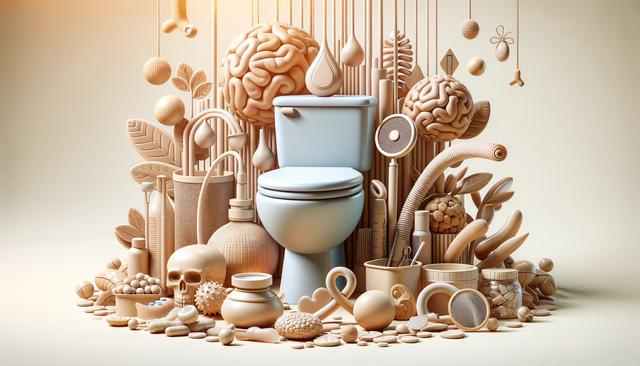Understanding Overactive Bladder and Its Impact
Overactive bladder (OAB) is a condition that causes a sudden urge to urinate, often resulting in involuntary leakage. It can significantly disrupt daily routines, impact sleep quality, and reduce confidence in social settings. While OAB can affect individuals of all ages, it is more common in older adults, particularly seniors. Common signs include frequent urination (more than eight times in 24 hours), nocturia (waking up multiple times at night to urinate), and urge incontinence. These symptoms can be frustrating, but the good news is that there are effective ways to manage them, including lifestyle changes, exercises, and natural supplements for bladder control.
The causes of OAB vary and may include aging-related changes in the bladder muscle, nerve damage, urinary tract infections, or certain medications. Identifying the root cause is essential for choosing the right treatment. Many seniors seek options that are accessible, non-invasive, and do not require a prescription, making natural bladder support supplements an appealing choice.
Natural Ways to Improve Bladder Control
Improving bladder control often begins with simple lifestyle adjustments. These changes can help reduce the severity of symptoms and improve overall bladder health. Some effective strategies include:
- Reducing caffeine and alcohol intake, which can irritate the bladder
- Following a bladder training schedule to gradually extend the time between bathroom visits
- Maintaining a healthy weight to reduce pressure on the pelvic floor
- Practicing pelvic floor exercises, also known as Kegels, to strengthen bladder-supporting muscles
- Staying hydrated while avoiding excessive fluid intake before bedtime
In addition, avoiding bladder irritants such as spicy foods and acidic fruits can also help. Keeping a bladder diary to monitor triggers and patterns can be beneficial when discussing symptoms with a healthcare provider. These adjustments, when consistently practiced, can support long-term improvements in bladder health.
Supplements That Support Bladder Health
There are a number of supplements formulated to support bladder function and improve control without the need for prescription medications. These options are especially popular among seniors looking for a gentle and natural approach. Some of the most commonly used ingredients include:
- Pumpkin seed extract – known for its role in reducing urinary frequency
- Cranberry extract – helps maintain urinary tract health
- Soy germ isoflavones – support hormonal balance in postmenopausal women
- Magnesium – may help relax the bladder muscle and reduce spasms
- Vitamin D – supports overall muscle function, including the pelvic floor
These supplements are typically available over the counter and are considered safe when taken as directed. Many seniors report positive experiences with bladder control supplements that combine several of these ingredients. It’s important to choose products with transparent labeling and evidence of third-party testing for quality assurance.
Choosing the Safest Options Without a Prescription
For those looking to avoid prescription medications, selecting a bladder control supplement with a strong safety profile is crucial. Many non-prescription options use plant-based ingredients and have minimal reported side effects, making them suitable for long-term use. When evaluating a supplement, consider the following:
- Does it contain clinically researched ingredients?
- Is it free of artificial additives and common allergens?
- Are there third-party lab tests available to verify purity and potency?
- Are user reviews generally positive, especially from senior individuals?
It’s also wise to consult a healthcare provider before starting any new supplement, especially if you’re currently taking medications or managing other health conditions. While natural supplements can be a helpful part of a bladder health plan, they work best when combined with lifestyle changes and regular medical guidance.
When to Seek Additional Medical Support
While many people find relief through natural methods and over-the-counter supplements, there are times when professional medical intervention is necessary. If symptoms persist, worsen, or are accompanied by pain, blood in the urine, or signs of infection, it’s important to consult a healthcare provider. These could indicate underlying conditions that require targeted treatment.
Medical treatments for OAB may include physical therapy, prescription medications, or in some cases, minimally invasive procedures. However, these are usually considered after non-invasive options have been explored. The key is early intervention—addressing bladder concerns sooner rather than later can help prevent complications and improve quality of life.
Many seniors benefit from a combined approach that includes:
- Routine checkups to monitor bladder function
- Continued use of bladder-friendly supplements
- Behavioral strategies like bladder training
- Support from a urologist or pelvic health specialist
With the right plan, it’s possible to manage OAB effectively and regain confidence in daily life.
Conclusion: Empowering Seniors to Manage Bladder Health Naturally
Overactive bladder can be a challenging condition, particularly for seniors, but it doesn’t have to take over your life. By understanding the signs, making thoughtful lifestyle adjustments, and exploring safe, natural supplements, many individuals find meaningful relief. There’s no one-size-fits-all solution, but with a little patience and the right tools, it’s possible to improve bladder control and enhance your overall well-being. If you’re considering supplements, look for those with a strong reputation, clinically supported ingredients, and positive feedback from older adults. And remember, staying informed and proactive is the first step toward better bladder health.




Leave a Reply